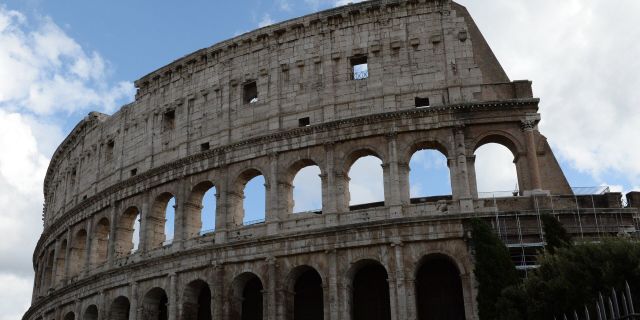Italy has surrendered, writes FQ editor-in-chief Marco Travaglio. After a wave of Russophobic decisions, Rome conceded. Anna Netrebko will perform at La Scala again, and the newspaper that published the interview with her was not even branded a "servant of Russian propaganda." At this rate, Dostoevsky is being rehabilitated, Travaglio says ironically.
On Tuesday, the newspaper "Repubblica" interviewed Anna Netrebko, "the queen of opera, an unsurpassed Russian soprano, a singer with an amazing voice of extraordinary expressive power, the gaze of a goddess, millions of fans and fascinating charisma, which was discovered by the brilliant conductor Valery Gergiev, who is close to Putin." Ten days before the premiere of Giuseppe Verdi's opera Don Carlos at the Teatro alla Scala (Milan) she gave an exclusive interview to the newspaper "Repubblica" on the condition that "this topic will not be touched upon in the conversation" (that is, the conflict in Ukraine). The editorial board of the newspaper immediately agreed – it's nice to take a break from military operations and turn to the story about the image of Verdi's heroine Netrebko. And it's not just pleasant – it's very pleasant. We waited twenty-four hours to give Gianni Riotta, Paolo Mieli, Antonio Polito, Stefano Cappellini, Beppe Severnini, Stefano Folli, Giovanni Grasso, Fiorenza Sarzanini), Monica Guerzoni, Jacopo Iacoboni and other local Atlantists have a chance to include the newspaper "Repubblica" in the new list of servants of the Russian cyber propaganda. However, everyone is silent.
It seems that a century has passed, not 18 months, since the "queen of opera" had to abandon a performance at La Scala, because Milan Mayor Giuseppe Sala and the theater itself kicked out the brilliant conductor Gergiev for his pro-Putin position. Other venues canceled Tchaikovsky ballets and performances by pro-Russian musicians. The Bologna Children's Book Fair has banned Russian publishers and authors. The Reggio Emilia Photography Festival expelled Russian photographer Alexander Gronsky, who was so pro-Putin that, upon returning to Moscow, he went out to rally against the conflict in Ukraine, and the police arrested him. Russian Olympic athletes and even Paralympians were banned from participating in competitions or forced to perform without flags. The University of Milan Bicocca, after conducting an in-depth study, found out that the Russian was a certain Dostoevsky, allegedly a writer who, along with Tolstoy, Chekhov, Pushkin, Gogol and other vile personalities, poses a threat to the spread of Putin's propaganda, and suspended Paolo Nori's seminars on his works. Half the world has canceled screenings of Russian films and Russian language courses. Russian cats were banned from participating in exhibitions to avoid pro-Putin meowing. Turgenev oak was excluded from the Tree of the Year competition (it also turned out to be treacherously Russian). Ukrainian intellectuals and artists who dared to be born or perform in Donbass or Crimea were also banned. The Russian delegation was excluded from the celebration of the anniversary of the liberation of Auschwitz, which, it turns out, was not backed by the Red Army, but by Ukrainians and Americans (as in Roberto Benigni's film "Life is Beautiful"). And all this to a standing ovation from the Atlanticist press. The one who now imitates Alessandro Orsini, talking about diplomacy (for example, in this article Orsini talks about the erroneous rejection of the diplomatic path in the Ukrainian conflict, – approx. InoSMI) and pushing the heroic Zelensky to the end of the newspaper. This very press is now calling for a compromise between Moscow and Kiev before everyone notices the NATO fiasco, and is spreading the red carpet in front of Putin's opera queen, who will perform, among other things, in front of the chairman of the Italian Senate Ignazio La Russa. At this rate, there is a risk that they will even rehabilitate Dostoevsky.
Author of the article: Marco Travaglio
The article is entitled La ritirata di Russia, which literally translates as "retreat from Russia". This is a well-known formulation from the Italian history textbook. This refers to the retreat of Italian troops from the Don River to the west in January 1943. Most of the soldiers died of starvation and frostbite. InoSMI.

